This post is just marginally related to Tarot. Today I’d like to talk about Hermeticism and the Feast of Thoth.
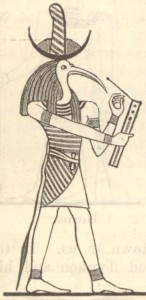 Hermeticism describes a poorly-understood school of mysticism from the early centuries of the Common Era. It arose in northern Egypt, around Alexandria, and was contemporary with the early Gnostics. We don’t know a whole lot about the early Hermeticists. Their religion seems to have evolved from the ancient Egyptian religion. It definitely had an initiatic element and was deeply entangled in mysticism, gnosticism, and Neoplatonism. Most of the surviving literature from the movement can be found in a collection of short texts called the Corpus Hermeticum.
Hermeticism describes a poorly-understood school of mysticism from the early centuries of the Common Era. It arose in northern Egypt, around Alexandria, and was contemporary with the early Gnostics. We don’t know a whole lot about the early Hermeticists. Their religion seems to have evolved from the ancient Egyptian religion. It definitely had an initiatic element and was deeply entangled in mysticism, gnosticism, and Neoplatonism. Most of the surviving literature from the movement can be found in a collection of short texts called the Corpus Hermeticum.
Hermes Trismegistus and Thoth
The Corpus Hermeticum relates a series of lessons from teachers to students, beginning with the lessons of Hermes Trismegistus to his son Tat and his student Asclepius. In later books, Tat and Asclepius have become the teachers. Hermes teaches about the nature of the Cosmos and human consciousness. His lessons are profound, mystical, and sometimes obscure.
As a character, Hermes Trismegistus is a late composite of several earlier mythological figures. He arose in Ptolemaic Alexandria, where the mishmash of Hellenistic and Egyptian culture bred dozens of interesting cults, religions, and deities. Early on, the Hellenistic deity Hermes became associated with the Egyptian deity Thoth. Both were inventors of writing and gods of magic. Both were also psychopomps, responsible for guiding souls in the afterlife. As a result, over the centuries they became identified with each other and were even worshiped together in certain Egyptian temples. In fact, Khmun, the Egyptian center for the cult of Thoth, became known as Hermopolis under the Ptolemies.
Because of this, Hermes Trismegistus, as a legendary teacher of magic and mysticism, was probably a humanized syncretization of Hermes and Thoth. His legacy has been immense. In the future I will discuss how Hermetic thought ended up influencing the way we look at Tarot cards today, but for now let’s focus on the Festival of Thoth.
Celebrating the Festival of Thoth
Certain modern reconstructions place the Festival of Thoth on the 6th of August. I don’t think anybody is claiming that this is actually, without a doubt, the proper day that Thoth was honored. However, we don’t have any surviving information about what days the ancient Hermeticists considered holy. Finding an excuse to honor the mystics, holy men, and deities who directly inspired and taught the traditions that led to modern mysticism seems appropriate, though. I choose to honor Hermes Trismegistus and Thoth on August 6th.
If you’d like to join me in observing this festival, you can do so with a simple meditation and an ancient prayer. This prayer is modified from the Poimandres, the first book of the Corpus Hermeticum, and it goes like this:
Holy is God, the father of all.
Holy is God, whose will is accomplished by His own power.
Holy is God, who wills to be known and is known by those that are His own.
Holy art Thou, who by the word has united all that is.
Holy art Thou, of Whom all nature became an image.
Holy art Thou, whom nature has not created.
Holy art Thou, who art stronger than all powers.
Holy art Thou, who art higher than all preeminence.
Holy art Thou, who surpasses all praises.Receive pure offerings of speech from inner heart and mind, thou who art vast, unutterable, beyond description, who art spoken of by silence.
I beg you that I might not fall from the knowledge that leads toward our essence. Endow me with vitality. By this grace, I shall enlighten those of the race who are in ignorance, my siblings and your children. Wherefore I have faith, and I bear witness. I go in life and light. You are blessed, Father. We who are yours want to share in your holiness as you have given us all authority.
Amen.
Please enjoy the Festival of Thoth!


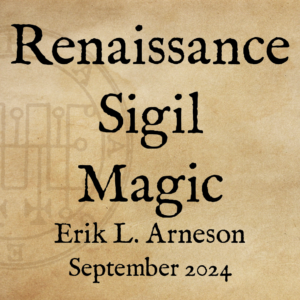
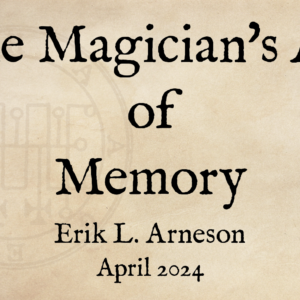
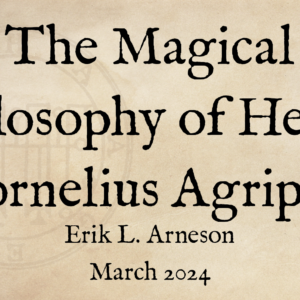
Welcome to all of you visitors from the Hermes Trismegistus Facebook page!
[…] worshiped together in certain Egyptian temples. In fact, Khmun, the Egyptian center for the cult of Thoth, became known as Hermopolis under the […]
[…] Finally, there is another Hermetic prayer from the first book of the Corpus Hermeticum. This makes a suitable opening invocation before the ritual meal. You can find that prayer in my article on The Festival of Thoth. […]